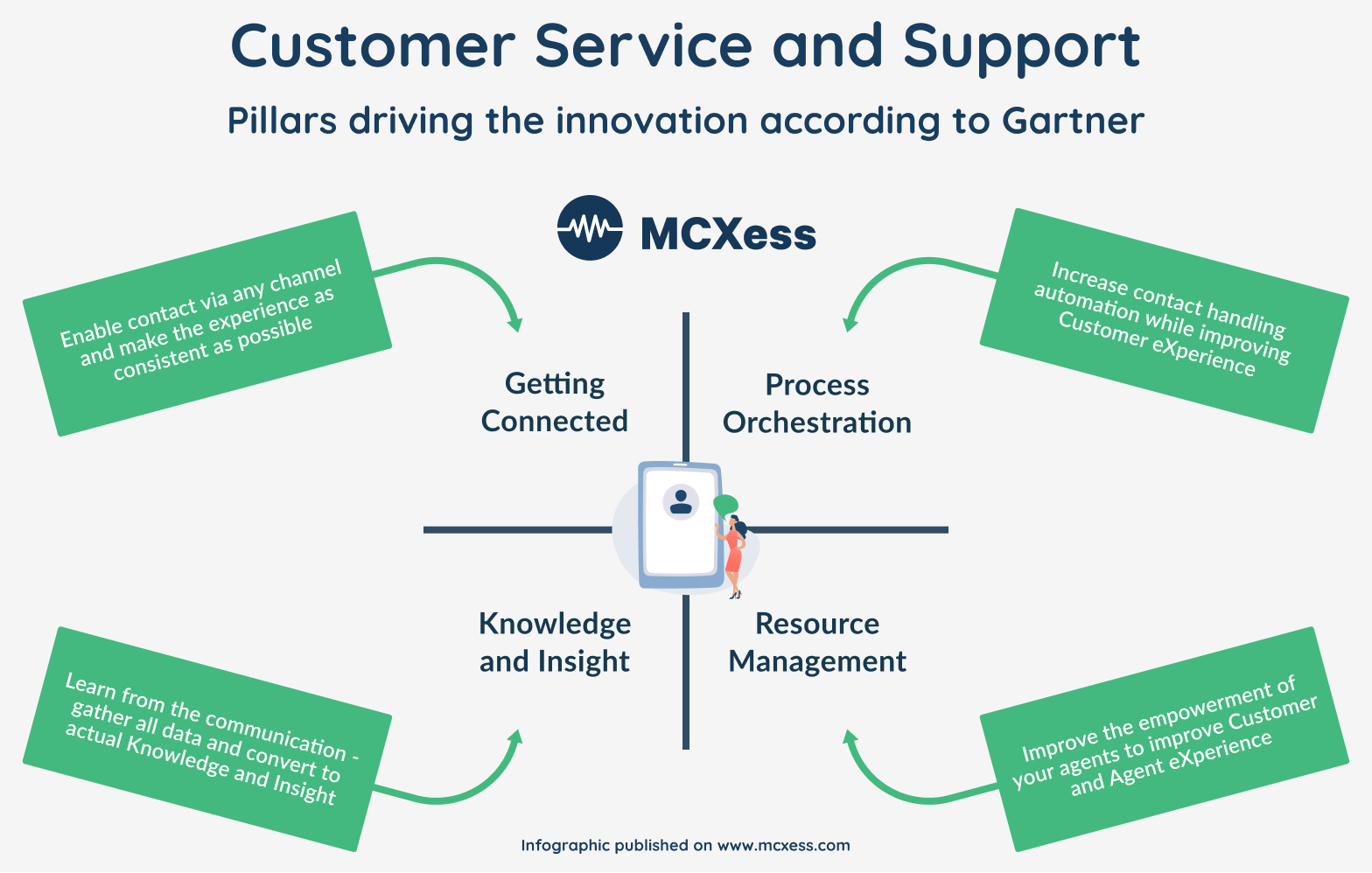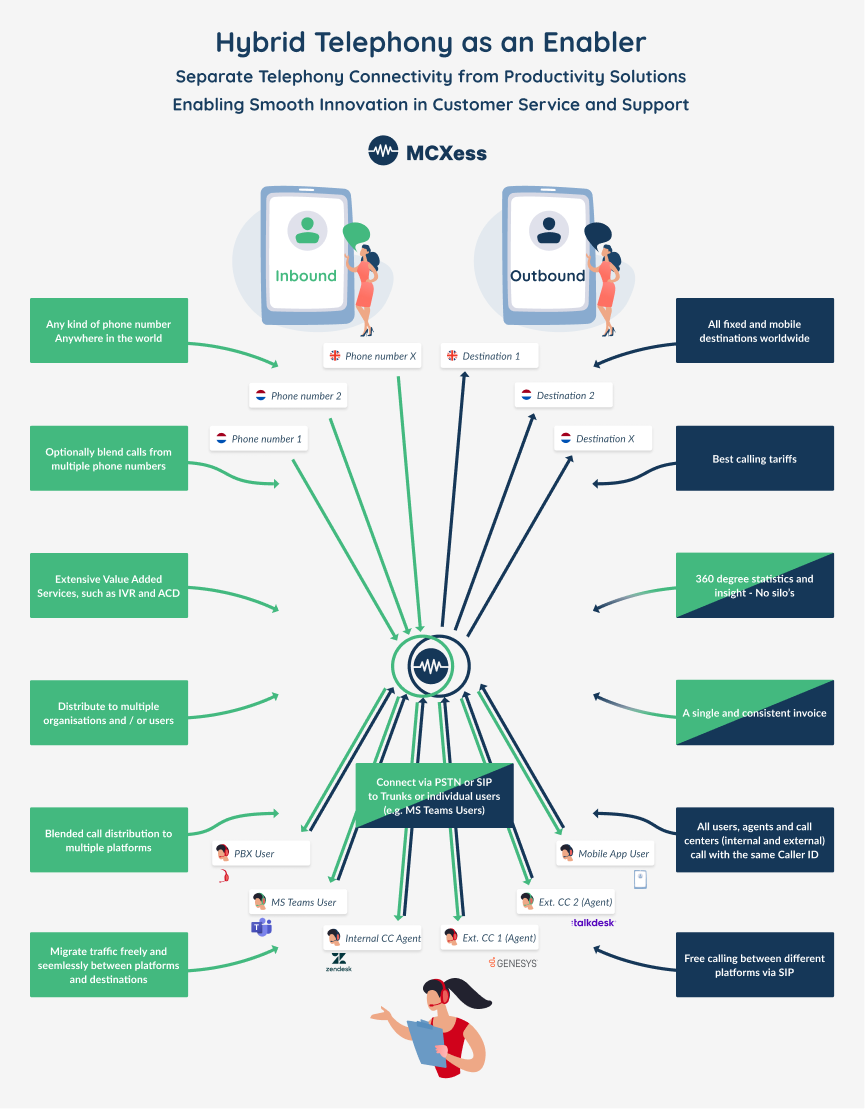
Telephony is one of the oldest telecommunication channels out there, yet it is as relevant as it has ever been. When deployed right, telephony can be an enabler for rapid innovation as presented in the Customer Service and Support Hype Cycle.
Fast moving innovations in the Customer Service and Support Hype Cycle
It is an exiting time. It is incredible how much progress is being realised in Customer Service and Support technologies. These innovations are actually improving the customer experience and are following each other at an incredible fast pace. Gartner published the following hype cycle for Customer Service & Support Technologies, august 2022:

Figure 1 - Gartner Customer Service & Support Technologies Hype Cycle, August 2022
Almost all innovations are expected to reach the Plateau of Productivity within 1 to 5 years. That is mind boggling! As a reference: Most emerging technologies are expected to reach the Plateau in 5 to 10 years.
This provides Customer Service and Support organisations a lot of options to improve. If ever there is a good period to meet targets, it is the coming period.
Customer Service and Support organisations are maturing fast and are improving professionally. The main areas driving innovation – as identified by Gartner – are getting connected, process orchestration, knowledge and insight, and resource management. We have translated these ‘pillars’ to the following:

Figure 2 - Pillars driving Customer Service and Support Innovation according to Gartner
Together these pillars address all aspects of Customer Service and Support, but each of them requires their own specific knowledge and improvements. By addressing them distinctly, better individual and overall results can be achieved.
Telephony can actually be an enabler for all of these developments, but the classical perception – and scope – of telephony has to go.
On the one hand, from the hype cycle, we can conclude changes in Customer Service and Support systems will come in abundance. And on the other hand, from the pillars, we see that distinct specialisms are involved, each of which will require their own functionality and possibly platform. This will then require all these systems to work together seamlessly.
It should not be about implementing a solution for communication, but about providing the right tools for the job at hand and while doing that job, some communication might be needed. The most efficient tool (set) will change based on which job is at hand. In those cases, the needed communication capabilities should be paired with the respective tool. So, it is not about implementing a good telephony system, but about having the right hybrid telephony connectivity solution. And this is where we come to Telephony as an enabler.
These developments ask for a paradigm shift. Telephony as a whole should not be regarded as a platform – and phone numbers and outbound calling should not be regarded as an integral part of a productivity platform, but as a separate strategical service. Once Telephony connectivity (phone numbers and outbound calling) and the (productivity) platforms have been de-coupled, you will be free to switch to- and/or combine any productivity solution you might seem fit. If and when required.
A true Hybrid telephony connectivity system is capable to distribute calls freely to and between different systems without any limitation or migration. Once this is in place, your organisation can fully focus on the Customer Service and Support tools. Systems can come and go and can be used in parallel without any disruptions in telephony. This is when you position Telephony as an enabler.

Figure 3 - Hybrid Telephony as an enabler for the customer Service and Support Hype Cycle from Gartner
We have a lot more resources covering this topic. Here are some examples:
In case of any additional questions, please do not hesitate to contact us, or leave a comment below!

